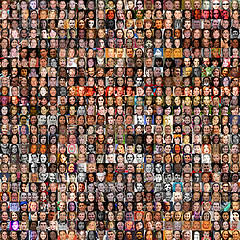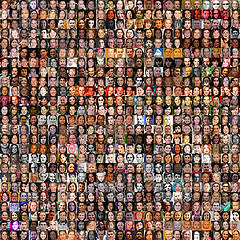Hollywood And Its Artificial Intelligence

People living in Hollywood seems to own a different belief system which make some fundamental laws of life. The most common among these laws are: The bad always loses eventually, terrorists are bound to be from another country, rousing speeches are ritual before battle, or a woman’s clothes are neccessary to fall off during an exciting chase and etc.
Artificial Intelligence shown in movies is no exception to the rule. Below are some of the basic tenets of AI in Hollywood movies:
a) Computers will one day rise up against us. A belief borne possibly of technological superstition and our underlying fear of technology. Demonstrated in old favorites like Terminator, where artificially intelligent machines decide to rebel against their creators and wage a nuclear war against humans. The Kubrick film, 2001: A Space Odyssey is another example of an AI being confronting humanity. A spaceship crew is trapped with an AI computer on board which tries to kill them off slowly. And on a related theme: that all tangible pieces of technology from your home computer to the kitchen toaster are somehow in cahoots and will one day unite against us.
b) We can create AI subjects who will fall in love with us. A myth that has plagued us from the Greeks to the geeks. Back in ancient Greek times, legend had it that Pygmalion, a talented sculptor and known hater of women, created the perfect woman out of ivory and was granted his wish to make her real by Aphrodite. A popular Hollywood plotline explored by such movies as The Perfect Woman, Mannequin and Stepford Wives (amongst the more wholesome examples anyway). An idea that offers hope for all those geeky science fiction fans who can’t get a date but might be able to invent one. Also probably has appeal for the control freaks out there.
c) Androids with AI want to be real. You might call it the Pinocchio syndrome. It’s a theme that runs through a number of movies, notably in A.I., a movie about an android boy David who craves the love of his adoptive human mommy. Unwanted by the rest of the family, at one point he does actually make a wish to become a real boy. Actually, the theme is not just a wish to be real, but to be on equal footing with humans. In the cult classic Blade Runner, slave humanoids called replicants have been given a 4-year lifespan by their human creators. They escape to earth illegally and try to get their time to live extended.
What all these ideas about AI have in common is a love-hate relationship between humans and technology. We love technology, we fear it, and we think it has a life of its own. Hollywood uses both our love and fear of technology to give rise to lovable characters like A.I.’s David and unfeeling bad guys to destroy like the Terminator. Ultimately, the plotlines about AI are not used just as a playground for what ifs but as a way to define what it means to be human, as opposed to what it doesn’t.
This Article is written by Lena M Butler, from TestCountry the contributor of Health & Drug Testing Information Center. More information on the subject is at http://www.testcountry.org, and resources from other home health and wellness testing articles are used such as Alcohol Testing Kit.
Related Artificial Intelligence Articles
